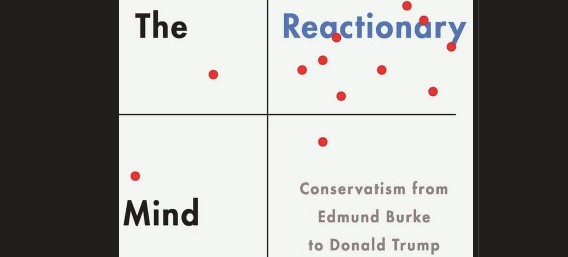In the new edition of 2011’s The Reactionary Mind, Corey Robin updates what is sure to become a classic in the history of political thought.
You can read my much longer “digested read” or “midrash” of the book here
As I write this the populist, Trump-lite and thuggish, Boss-Hogg lookalike Premier of Ontario has invoked what is called the “Notwithstanding Clause” to overturn a judge’s overturning of a bit of legislation that sought to reduce the number of elected representatives on the Toronto city council—a bit of parochial political dirty tricks that make Doug Ford (brother to Rob Ford, the infamous late Mayor of Toronto) seem the most small-minded conservative ever. Yet he has great support from his base for attacking the courts, those “un-elected” challengers to the power of (cough cough) the supposed will of the People. Ford is in fact just playing from the conservative (that is, the “reactionary’s”) playbook, which is analysed in great depth and to superb effect in Corey Robin’s 2017 re-issue and revision of his 2011 book, The Reactionary Mind: Conservatism from Edmund Burke to Donald Trump (which originally stopped at Sarah Palin, who is absent from this edition (alas?)).


